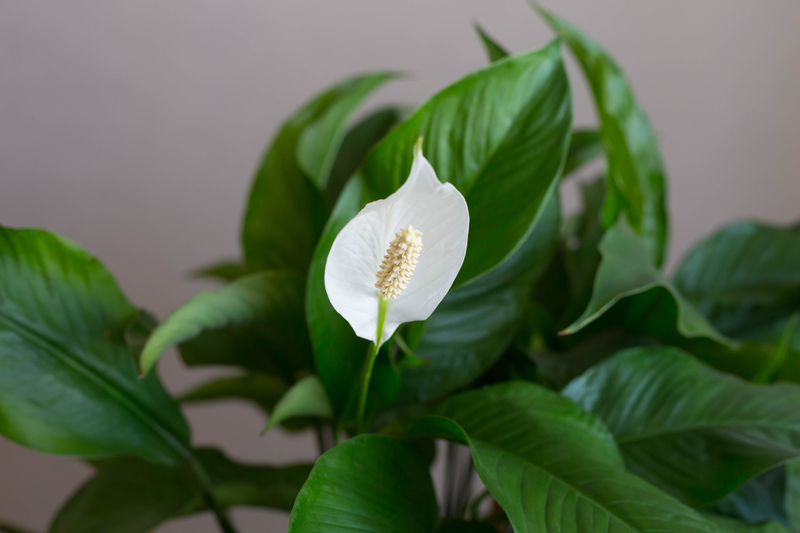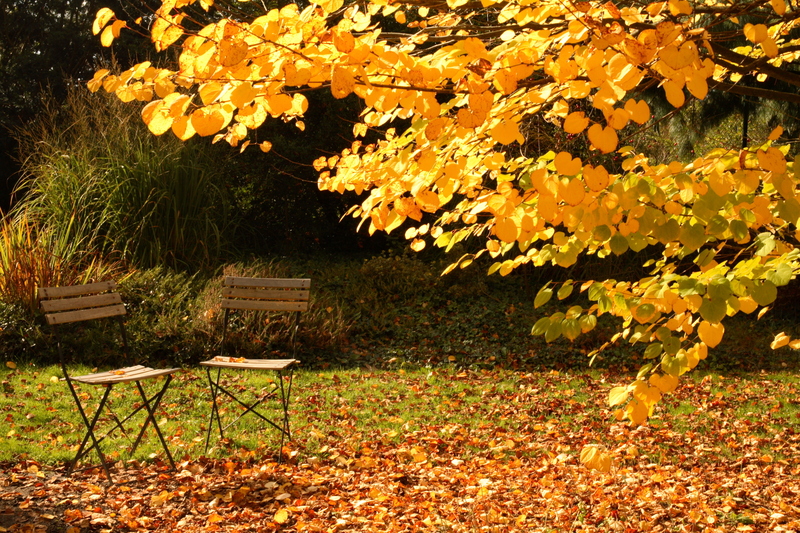Cultivate Success with 9 Beginner Gardening Tips
Posted on 21/09/2025
Cultivate Success with 9 Beginner Gardening Tips
Are you ready to transform your outdoor space and enjoy the satisfaction of growing your own flowers, herbs, or veggies? *Cultivating success in gardening* starts with the right approach, knowledge, and a little bit of patience. Whether you have a sprawling yard or a cozy balcony, mastering the basics can set you on a path to achieve a lush, thriving garden. In this in-depth guide, we'll unveil 9 essential beginner gardening tips to jumpstart your journey and ensure a bountiful harvest for seasons to come.
Why Gardening Matters: The Rewards of Growing Your Own
Before we dig into the tips, let's explore why home gardening is more than just a pastime. Gardening boosts mental well-being, relieves stress, and connects you with nature. It's an eco-friendly hobby that supports pollinators, enhances your home's curb appeal, and can even supply your kitchen with fresh, pesticide-free produce. With these benefits in mind, let's nurture your green thumb with the best garden success advice for beginners.

1. Choose the Right Location
The foundation of every great garden is its location. To cultivate gardening success, pay attention to sunlight, wind, and access to water.
- Sunlight: Most vegetables and flowers need at least 6 hours of direct sunlight each day.
- Shelter: Avoid areas plagued by strong winds or deep shade.
- Water Access: Ensure your garden is within easy reach of a hose or watering can.
Tip: Observe your yard or balcony throughout the day. Note which sections receive the most, and least, sunlight to pick the perfect spot for your garden beds or containers.
Selecting Containers for Small Spaces
If space is limited, container gardening is your friend. Use pots, hanging baskets, or vertical planters to maximize space and flexibility--ideal for patios and urban settings!
2. Get to Know Your Soil
A thriving garden starts from the ground up. Understanding your soil type helps you select plants that will perform best and tailor your care routine for optimal health.
- Soil Testing: Home soil test kits can reveal pH, nutrient content, and drainage characteristics.
- Amend as Needed: Add compost to enrich poor soils, or sand/organic matter to improve heavy clay or compacted areas.
Expert Tip: Healthy, loamy soil feels crumbly. Poor drainage and compaction stifle root growth and cause problems down the line!
Composting for Beginner Gardeners
Start a small compost pile or bin to recycle kitchen scraps and yard waste into nutrient-rich gold for your garden beds. It's sustainable, free, and boosts plant vitality.
3. Select Easy-to-Grow Plants
Set yourself up for victory by choosing beginner-friendly plants--those that are forgiving, resilient, and low-maintenance. Consider the following:
- Vegetables: Lettuce, radishes, green beans, zucchini, and cherry tomatoes.
- Herbs: Basil, mint, chives, parsley, and oregano.
- Flowers: Marigolds, sunflowers, zinnias, and nasturtiums.
Insider Advice: Start small! Success with a handful of easy crops is far more rewarding than being overwhelmed by a large, unruly patch.
Companion Planting Tips
Certain plants support each other's growth. For instance, basil enhances the flavor of tomatoes and deters pests--a classic example of cultivating a thriving beginner garden using science.
4. Plan Before You Plant
Careful planning is the secret to a bountiful harvest. Map out your beds or containers, considering each plant's mature size and sunlight needs. Succession planting--staggering the sowing of seeds at different intervals--can prolong your harvest and maximize yields.
- Draw a mini garden layout or use free online garden planners.
- Group plants with similar water and sun needs together.
- Allow for adequate spacing: overcrowding invites disease.
Pro Tip: Label your plantings as you go. Garden markers help track what's where, especially when seedlings look similar.
5. Water Wisely
One of the most important success tips for new gardeners is proper watering. Overwatering and underwatering are common mistakes, but easy to prevent once you understand your plants' needs.
- Consistency: Aim to keep soil consistently moist, but not waterlogged.
- Deep Watering: Water deeply at the soil rather than just sprinkling the surface.
- Morning Watering: Early watering reduces evaporation and keeps plants hydrated during the heat of the day.
Soak the soil, not the leaves, to prevent fungal diseases and wastage!
6. Feed Your Plants
Just as we need nutrition to thrive, so do plants. Start with healthy soil, but consider supplementing with organic fertilizers or natural amendments.
- Compost: Apply compost in spring or fall to boost soil fertility.
- Mulch: A layer of organic mulch retains moisture, suppresses weeds, and slowly feeds your soil as it breaks down.
- Organic Plant Food: Liquid fish emulsion, seaweed, or worm castings are excellent for vegetable and herb gardens.
Beginner Success Formula: Avoid synthetic fertilizers that can damage delicate roots or harm helpful soil microbes. Organic is best!
7. Watch for Pests and Diseases
Part of growing a healthy garden is recognizing and managing pests or diseases before they get out of hand.
- Inspect Regularly: Check leaves (top and bottom) for spots, holes, or discoloration.
- Encourage Beneficial Bugs: Ladybugs, lacewings, and bees are your allies.
- Handpick or Spray: Remove pests, or use safe homemade sprays (like diluted soap) if needed.
Tip: Healthy, resilient plants are less likely to fall victim to pests or disease, underscoring the importance of prior tips!
Natural Pest Control Ideas
Plant garlic, marigolds, or nasturtiums as borders. These naturally repel aphids and beetles, helping you achieve beginner gardening success with minimal chemicals.
8. Learn to Prune and Deadhead
Pruning isn't just for shrubs or trees--it also improves the health and productivity of vegetables and annuals. Regularly remove dead or damaged leaves and spent blooms (deadheading) to encourage continual growth and stop disease in its tracks.
- Use clean, sharp tools to prevent spreading disease.
- Always cut just above a set of healthy leaves or buds.
Note: Some plants (like tomatoes) benefit from regular removal of side shoots to direct energy into fruit production, a key to increasing garden productivity for beginners.
9. Keep Learning and Be Patient
Every great gardener started as a beginner. Each season brings new lessons, successes, and even a few setbacks. Pay attention to what works--and what doesn't--in your specific garden environment. Keep notes in a garden journal or digital app to track progress over time.
- Connect with local gardening clubs or online communities for inspiration and advice.
- Read gardening books, blogs, and watch helpful videos.
- Don't be afraid to experiment and try new plants each year!
Patience truly is the gardener's best friend. Nature has its own timetable. Celebrate small victories, and remember: a lush, healthy garden is built over multiple seasons, not in a single weekend!

Bonus: The Importance of Native Plants
Incorporating native plants into your garden is one of the best ways to ensure success, especially for beginners. Native species are naturally adapted to your local climate and soil, meaning they require less maintenance and are more resistant to local pests and diseases. They also offer vital support to pollinators and local wildlife, making your garden a true haven for biodiversity.
Examples:
- Milkweed and coneflowers in North America
- Lavender and primroses in Europe
Summary: Sow the Seeds of a Thriving Garden
Following these 9 beginner gardening tips will set you firmly on the path to gardening achievement. To cultivate success as a novice gardener:
- Choose the right spot
- Understand your soil
- Pick easy-to-grow plants
- Plan and label your garden
- Master watering
- Feed your soil and plants naturally
- Keep vigil for pests and diseases
- Prune for health and beauty
- Embrace patience and lifelong learning
Ready to dig in? With these practical and essential beginner gardening strategies, your home garden will flourish, your confidence will grow, and you'll enjoy the beauty and bounty that only gardening can provide. Happy gardening - and remember, each seed you plant is a step closer to your own flourishing backyard oasis!
For more detailed tips, seasonal guides, and expert advice, stay connected with our gardening community. Share your triumphs and challenges, and keep nurturing your personal paradise--one leaf, flower, and fruit at a time!
Latest Posts
Cultivate Success with 9 Beginner Gardening Tips
Transform Your Yard: Ingenious Gardening Tips for Dog-Friendly Spaces
From Soil to Sky: Gardening's Role in Climate Resilience

